
2024 Annual Conference
- Registration Closed
The NLADA Annual Conference is the premier skills-building and knowledge-sharing event for the civil legal aid, public defense, and public interest law communities. More than 700 equal justice advocates come together each year to participate in substantive workshops on topics critical to helping effectively meet the legal needs of low-income people. Our Annual Conference is the once-a-year event that brings all three communities together to learn, network and be supported. We hope that all attendees walk away with new knowledge, connections to new members of the community, and most importantly new inspiration to continue the fight for equal justice.
-
Contains 1 Component(s), Includes Credits
Racial equity work requires our organizations to look inward at our own culture, policies and practices while at the same time looking outward, recognizing the racism our clients and communities experience and advocating with them against systemic oppression. This simultaneous need to work internally and externally is challenging. In this session, leaders from the civil legal aid community will share their experience navigating these issues, and engage with the audience to hear examples from the field, so that we can learn from each other how to keep moving our work for racial justice forward.
Racial equity work requires our organizations to look inward at our own culture, policies and practices while at the same time looking outward, recognizing the racism our clients and communities experience and advocating with them against systemic oppression. This simultaneous need to work internally and externally is challenging. In this session, leaders from the civil legal aid community will share their experience navigating these issues, and engage with the audience to hear examples from the field, so that we can learn from each other how to keep moving our work for racial justice forward.
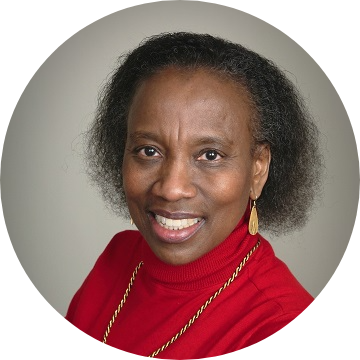
Lorray Brown
Executive Director
Michigan Statewide Advocacy Services
Lorray S. C. Brown is the Executive Director of Michigan Statewide Advocacy Services (MSAS), a statewide advocacy program that provides services to Michigan’s low-income residents, Michigan's immigrant communities, and seniors. Ms. Brown has also been the managing attorney and the statewide consumer law specialist for the Michigan Poverty Law Program (MPLP) since 2001. She has also directed the Michigan Foreclosure Prevention Project since 2009. In her role as the statewide consumer law and foreclosure specialist, she has provided litigation, advocacy and case consultation support for cases involving foreclosure prevention, anti-predatory lending, debt collection, payday loans, garnishment and student loans. Ms. Brown has conducted numerous trainings concerning consumer law, predatory lending, foreclosures, and mortgage servicing.
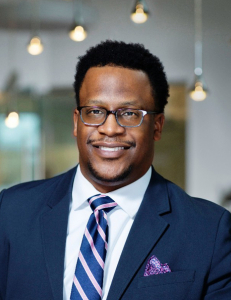
Justin Williams
Lakeshore Legal Aid
Justin serves as the inaugural Chief Equity Officer at Lakeshore Legal Aid, the largest civil legal aid provider in Michigan. His work encompasses the organization's DEI efforts and Employee Relations work. Justin has done similar work in the non-profit and higher education sector for nearly a decade, most recently serving as Chief DEI Officer at Girl Scouts of Southeastern Michigan. Justin aims to ensure that through his work, organizations are who they say they are and live into their commitments to equity and racial justice. When he's not driving that change, he's daddy to Taylor and Kendall, his 7 year old twin daughters.
-
Contains 1 Component(s), Includes Credits
This session calls upon the legal aid community to shift language justice from the margins of our work to the center, inspired by a line from Black feminist author bell hooks. We will explore how to prioritize the experiences of people who are directly impacted by oppression based on language by weaving language justice principles into our organizations, including updating our language justice plans with an equity lens, supporting our multilingual staff, collaborating with skilled interpreters and translators, facilitating inclusive multilingual spaces, community education, and making language rights a priority in our systemic advocacy. We will touch on how a language justice approach intersects with trauma-informed lawyering and collaborations with a wide range of multilingual partners, through which we work together across language barriers toward a shared vision of justice.
This session calls upon the legal aid community to shift language justice from the margins of our work to the center, inspired by a line from Black feminist author bell hooks. We will explore how to prioritize the experiences of people who are directly impacted by oppression based on language by weaving language justice principles into our organizations, including updating our language justice plans with an equity lens, supporting our multilingual staff, collaborating with skilled interpreters and translators, facilitating inclusive multilingual spaces, community education, and making language rights a priority in our systemic advocacy. We will touch on how a language justice approach intersects with trauma-informed lawyering and collaborations with a wide range of multilingual partners, through which we work together across language barriers toward a shared vision of justice.
- understand the legal framework for language access at the federal and state levels for the provision of language services to individuals with limited English proficiency and those who are Deaf.
- Explore emerging issues and advancements in language access, including technological innovations and evolving practices in language justice advocacy.

Jessica Jewell
.jpg)
Shawntel Williams, JD
Equal Justice Works Fellow
Legal Aid Foundation of Los Angeles
Shawntel Williams (she/her) is an Equal Justice Works Fellow at the Legal Aid Foundation of Los Angeles. In her project, Shawntel advocates on behalf of Filipino migrants who are identified as survivors of labor trafficking by providing them with holistic legal representation to redress the economic and emotional harm they have endured throughout their trafficking. In addition to her project, Shawntel supports LAFLA's Asian Pacific Islander Community Outreach Project by advocating for improved language access across API communtiies. Shawntel's fellowship is sponsored by Kirkland & Ellis and Albertsons.
Arash Jahanian
Arash Jahanian is Colorado Legal Services' advocacy director for Denver. In this role, Jahanian oversees the work of CLS' eight Denver-based units: consumer, housing, public benefits, farmworker rights, survivor services, low-income taxpayers, family and children, and the ID project. He was previously Senior Counsel at Denver Public Schools, where his main responsibility involved the District's longstanding consent decree relating to services for English Language Learners and their families. Jahanian’s prior legal experience includes working as Director of Policy and Civil Rights Litigation at the Meyer Law Office, PC, staff attorney at the ACLU of Colorado, attorney at the civil rights firm Rathod Mohamedbhai LLC, and judicial clerk for the Honorable Wiley Y. Daniel of the U.S. District Court for the District of Colorado. Jahanian has served as president of the Colorado LGBT Bar Association and chair of the Denver LGBTQ Commission. A graduate of the University of North Carolina and Georgetown Law, he is currently secretary of the board of the Interfaith Alliance of Colorado and on the ACLU of Colorado's legal panel.
Joel Minor

Silvia Argueta, JD
Executive Director
Legal Aid Foundation of Los Angeles
Silvia Argueta has been the Executive Director at the Legal Aid Foundation of Los Angeles (LAFLA) since 2008. LAFLA is the frontline law firm for low-income individuals in Los Angeles County. LAFLA is committed to promoting access to justice, strengthening communities, fighting discrimination, and effecting systemic change through representation, advocacy, and community education. Silvia leads a 200+ staff non-profit law firm with five offices, four self-help centers, three courthouse domestic violence clinics, and six medical-legal partnerships. She oversees an annual budget of over $40 million and all aspects of strategy, legal advocacy, finance, fund development, and technology. She recently oversaw an $18 million capital campaign and construction of LAFLA’s new headquarters, a cornerstone of justice that brings respect and dignity to both clients and staff. Silvia’s career has been devoted to achieving equal justice using direct representation, civil litigation and policy to effect change. Prior to joining LAFLA in 1999, she was a staff attorney at the Mexican American Legal Defense and Education Fund and prior to that at the American Civil Liberties Union Foundation of Southern California. She attended UCLA and obtained her degrees in Political Science and French in 1985. She received her law degree from UC Hastings College of the Law in 1989. -
Contains 2 Component(s), Includes Credits
Topics to be addressed in this presentation include: --How legal services providers can effectively build capacity in rural communities; --How the unique needs of rural communities can shape and direct legal advocacy and education efforts; --How to engage in cross-collaborative community education; and --How to scaffold translating legal advocacy into community self-advocacy.
Neighborhood Legal Services of Los Angeles County ("NLSLA") proposes a presentation on supporting rural communities in developing self-advocacy skills to defend student rights in schools. The presentation will educate participants on an innovative workshop model and support them in applying the strategy in their practices and service areas. The Antelope Valley and its school districts are and historically have been racially segregated and home to multiple, national news-worthy incidents of prejudice and racial violence. Located in a desert region of North Los Angeles County, about 70 miles north of the city of Los Angeles, the Antelope Valley's public schools serve a racially and socioeconomically diverse student population, numbering more than 75,000. Its students have been forced for years to contend with Antelope Valley school districts' ableist, racist, and highly punitive discipline and law enforcement policies, causing overwhelming and lasting harm to Antelope Valley's most vulnerable youth. Until NLSLA's Education Rights Practice started taking cases in the region, there were no permanent or comprehensive education legal services in the area, leaving countless students and families with little to no recourse in addressing the pervasive race- and disability-based discrimination, abuse, and educational neglect by the school system and the Los Angeles County Sheriff's Department with which it contracts. Even with NLSLA's dedicated team of education attorneys working tirelessly to advocate on behalf of students, the region's vastness, remoteness, and population size makes it impossible for our team to provide desperately needed legal services to all students who need it. In order to increase our team's capacity to advocate for students, come alongside communities and families, and creatively adapt to the challenges that come with legal representation in rural areas, NLSLA has, for the past year, developed and implemented a curriculum of skills-based advocacy workshops to parents, students, and community members in the Antelope Valley. Through partnerships with California Rural Legal Assistance, Cancel the Contract-Antelope Valley, and the Dolores Huerta Foundation, we have translated these workshops into Spanish and expanded their delivery in-person and virtually in other rural school districts across California. NLSLA attorneys have developed workshops in advocacy areas where families are most often left in the dark or deliberately misled as to their rights. Topics include defending students in expulsions, appealing suspensions, representing students in IEP meetings, challenging deficient facilities and school materials, and submitting discrimination complaints. The model of these 75-minute workshops is simple, and we will replicate it in our presentation (see question on format of the presentation for more information): --20 minutes of direct instruction, provided by PowerPoint; --5 minutes for facilitators (attorneys or community advocates trained by NLSLA attorneys) to explain the small group skills-based activity; --20-30 minutes of practicing the skill whole group or in small groups; and --10-15 minutes for questions. Families who attend the workshops, offered once a month in English and Spanish, also receive copies of the legal instructional materials used in the workshop, know your rights pamphlets, and template and sample letters or documents aligned with the skill in question so that the advocacy strategy can be carried out by families whenever needed in the future. Families also get digital copies of all materials to access at any time. The workshops have reached hundreds of new families in the first year alone. NLSLA and its partners believe that these workshops have innovated the way in which our education practice serves rural areas, and they hope to continue to expand capacity to share information that will empower families in remote regions to advocate for students and hold school districts accountable for their legal violations. We believe this is a model that is replicable and can help practices across the country effectively reach new service areas. Topics to be addressed in this presentation include: --How legal services providers can effectively build capacity in rural communities; --How the unique needs of rural communities can shape and direct legal advocacy and education efforts; --How to engage in cross-collaborative community education; and --How to scaffold translating legal advocacy into community self-advocacy.
- Review workshop curricular materials NLSLA created to adapt and use in their own practices or to use as a model in developing workshops in other substantive legal areas.
- Think critically about how to creatively adapt legal service models to the needs of rural communities.
- Consider the role of legal services attorneys in building capacity in communities to self-advocate and develop sustainable accountability structures by involving clients in strategy and advocacy decisions.
- Be introduced to a framework that encourages participants to consider innovative community partnerships to enhance the impact of legal interventions.
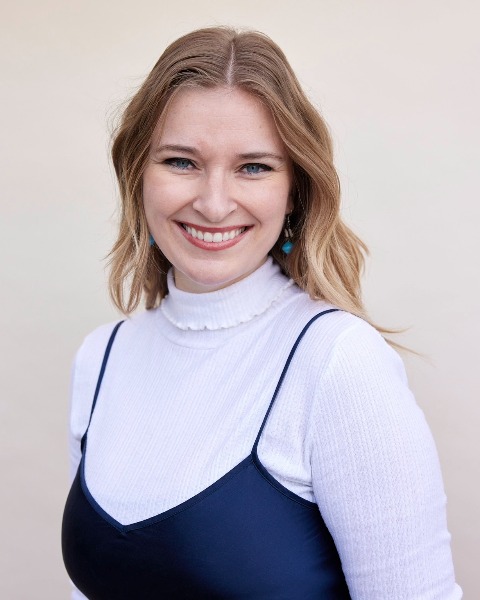
Chelsea Helena, Attorney
Supervising Attorney
Neighborhood Legal Services of Los Angeles County
Chelsea Helena is the Supervising Attorney of Neighborhood Legal Services of Los Angeles County's Education Rights Practice. Chelsea’s work focuses on representing students and families in discipline, policing, and special education matters in Antelope Valley Schools. After finishing law school at UCLA, she founded and now supervises the Education Rights Practice at NLSLA. Prior to becoming an attorney, she worked for five years as a public-school teacher in Atlanta, Georgia and got her master’s degree in early childhood education.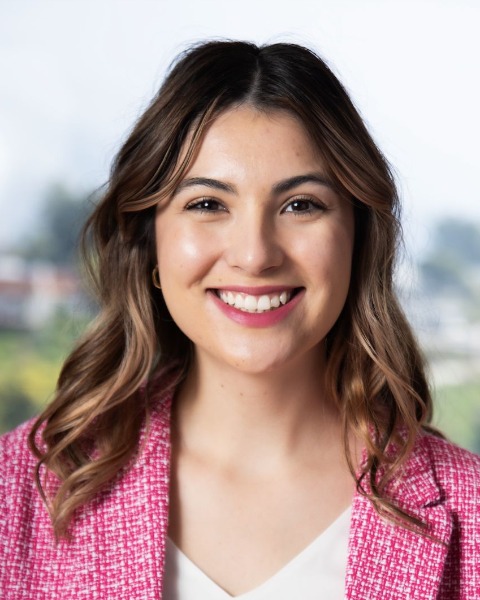
Hannah Meza, EJW Fellow
Equal Justice Works Fellow
Neighborhood Legal Services of Los Angeles County
Hannah Meza is an Equal Justice Works Fellow with Neighborhood Legal Services of Los Angeles County’s Education Rights Practice. Hannah’s fellowship seeks to advocate for children with learning disabilities by providing skills-based, self-advocacy workshops and direct representation to support families in navigating discriminatory education systems throughout California, with a special focus on the Antelope Valley region of Los Angeles. Hannah's personal and professional experiences in the education field, as well as her work with families in the Antelope Valley during law school, inspire her interest in education law and motivate her to serve this community. She graduated from Northeastern University School of Law.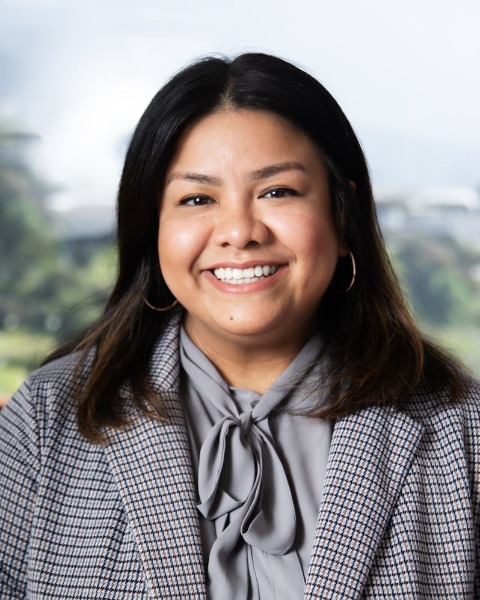
Elizabeth Valldejuli, Esq, EdM
Staff Attorney, Registered Legal Aid Attorney
Neighborhood Legal Services of Los Angeles County
Elizabeth Valldejuli is a Staff Attorney, Registered Legal Aid Attorney, with Neighborhood Legal Services of Los Angeles County’s Education Rights Practice. Elizabeth represents students and parents in special education and discipline matters across Los Angeles County. Elizabeth attended New York Law School, where she served public school students with special education and discipline issues in NYLS’s Education Law Clinic and at Advocates for Children. After law school, Elizabeth attended the Harvard Graduate School of Education, where she obtained her Master’s degree in Education Policy and Analysis and interned with the Education Trust. -
Contains 1 Component(s), Includes Credits
The United States Justice Gap has reached an unprecedented 92%, steadily increasing over the past decade. With this alarming trend in the US, the urgency for innovative solutions has never been more critical. When legal aid organizations band together as a cohort to pilot a new project, the impact reaches even further. Alaska Legal Services successfully applied for LSC's Disaster Relief funding on behalf of five tribally serving legal aids to support 12 new Community Justice Worker (CJW) paid positions. Join our workshop to learn directly from our cohort leadership team about the transformative impact as well as some challenges of expanding the 'Alaska Model'. Hear firsthand accounts from CJWs on the front lines, sharing their experiences and successes in delivering vital legal services in underserved communities. Discover how this collaborative effort is reshaping access to justice nationwide.
The United States Justice Gap has reached an unprecedented 92%, steadily increasing over the past decade. With this alarming trend in the US, the urgency for innovative solutions has never been more critical. When legal aid organizations band together as a cohort to pilot a new project, the impact reaches even further. Alaska Legal Services successfully applied for LSC's Disaster Relief funding on behalf of five tribally serving legal aids to support 12 new Community Justice Worker (CJW) paid positions. Join our workshop to learn directly from our cohort leadership team about the transformative impact as well as some challenges of expanding the 'Alaska Model'. Hear firsthand accounts from CJWs on the front lines, sharing their experiences and successes in delivering vital legal services in underserved communities. Discover how this collaborative effort is reshaping access to justice nationwide.
- Describe the "Alaska Model", and how this approach enables lawyers to operate at the top of their license, while CJWs ensure that legal services are accessible and culturally appropriate.
- Understand from cohort legal aids how a collaborative training approach has worked in their program, and where they deviate to individualized local training.
- Describe how the CJW model is changing the landscape of legal aid in different regions by embedding CJWs into legal deserts, and learn to leverage community partnership to replicate.
- Understand the importance of community connection, and evaluate how recruiting CJWs locally builds trust and cultural understanding.
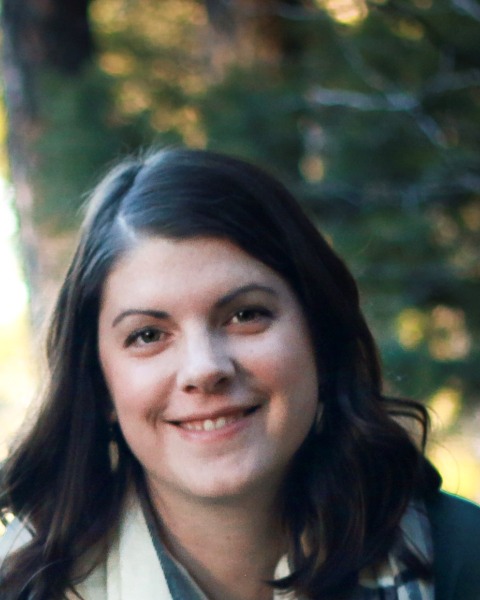
Sarah Carver, JD
Co-Director, Community Justice Resource Center
Alaska Legal Services
Sarah Carver is Co-Director of Alaska Legal Services Corporation’s Community Justice Worker Resource Center (CJWRC). She started her legal career with ALSC as the sole staff attorney in the rural Nome, Alaska office. Since 2018, she has worked to build up the Community Justice Worker program, developing curriculum and training almost 500 volunteers in 48 communities throughout Alaska. She graduated from the Alexander Blewett III School of Law in 2010.
Hayden Ramsey
CJW
Montana Legal Services Association
Hayden Ramsey (she/her) is the Community Justice Worker for Montana Legal Services Association serving Carbon, Park, Stillwater, and Yellowstone Counties. She has lived in rural Montana for the last fourteen years. Prior to joining MLSA as a CJW, she was a community based advocate for a domestic and sexual violence services program as well as a violence prevention educator. In her previous position she had the opportunity to travel to school districts and communities all over south-central Montana promoting healthy relationships for school-aged children and ensuring all community members knew they had resources and were not alone.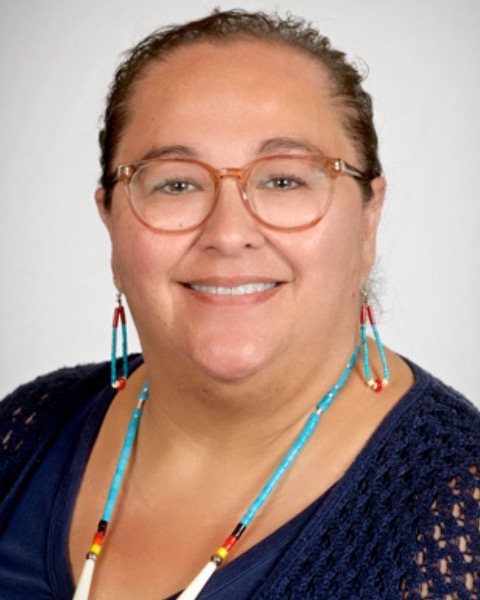
Stephanie Hudson
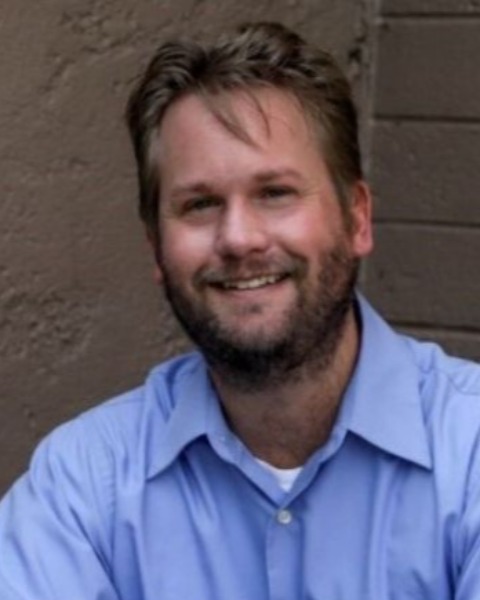
Cody Nelson, JD
Executive Director
Anishinabe Legal Services
Cody Nelson is the Executive Director of Anishinabe Legal Services, a 501(c)(3) non-profit civil legal aid law firm providing free legal assistance to low-income Native Americans residing on or near the Leech Lake, White Earth, and Red Lake Reservations in northern Minnesota. Cody graduated magna cum laude from the University of St. Thomas School of Law (Minneapolis, Minnesota) in 2006 and commenced employment with Anishinabe Legal Services as a staff attorney shortly thereafter. He is licensed to practice law in Minnesota as well as before the Leech Lake, White Earth, Mille Lacs, and Red Lake Band Tribal Courts. Cody has performed Executive Director duties for the program for over 10 years and has provided legal services directly to program clients for over 15.
Izzy Williamson, n/a
CJW Program Manager
Project 60/ALSC
Izzy Williamson is the Disaster Relief Program Manager in partnership with the Community Justice Worker Resource Center (CJWRC) at Alaska Legal Services Corporation (ALSC). Izzy provides oversight and management to the five-state legal aid cohort with a mission to recruit new culturally appropriate Community Justice Workers throughout Indian Country. Izzy worked for DNA-People’s Legal Services for eight years overseeing the Partnering for Native Health (PNH) AmeriCorps project, a Medical-Legal Partnership collaborative starting in the Navajo Nation and expanding throughout tribal communities in the United States. Previously, Izzy served as the Elder Rights Program Manager for Northern Arizona Council of Government, as well as nine years at the Arthritis Foundation Great West Region as the Vice President of Programs.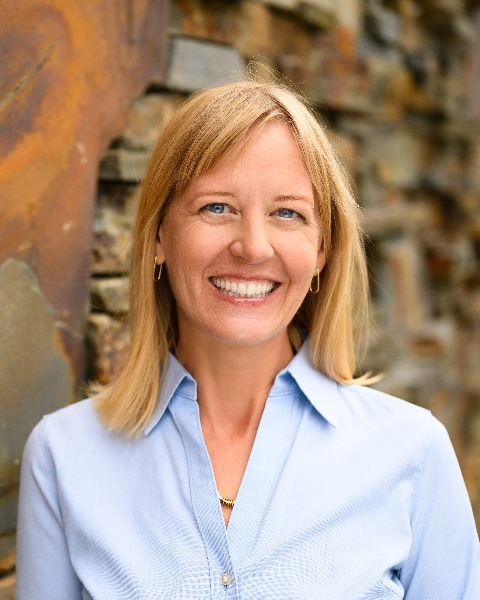
Nikole Nelson, JD
CEO
Frontline Justice
Nikole Nelson is the founding CEO of Frontline Justice. Prior to joining Frontline Justice Nikole was the Executive Director of Alaska Legal Services Corporation, Alaska’s only statewide provider of free civil aid. During her 25 years in the field, she worked to build community-led, people-centered justice models and to expand the scope of who can provide legal help including a groundbreaking launch of Partnering for Native Health, a Medical-Legal Partnership involving non-lawyer justice workers that won the 2019 World Justice Challenge. She also spearheaded reforming restrictions on unauthorized practice of law for justice workers in Alaska; these reforms were approved in 2022 by both the Alaska Supreme Court and State Bar Board of Governors. Nikole is a member of the American Bar Association’s Standing Committee on Legal Aid and Indigent Defense (SCLAID) and is a member of the Legal Services Corporation’s Rural Justice Task Force. -
Contains 1 Component(s), Includes Credits
Data is often weaponized against our clients to promote dangerous stereotypes and fear-mongering, resulting in harmful outcomes for the communities we serve. In this presentation, representatives from New York County Defender Services' Racial Justice Working Group will present ways in which PD offices can use internal and external data to reshape narratives around individuals accused of crimes and strengthen advocacy in litigation, mitigation, legislation, and public education in a race-conscious way.
Data is often weaponized against our clients to promote dangerous stereotypes and fear-mongering, resulting in harmful outcomes for the communities we serve. In this presentation, representatives from New York County Defender Services' Racial Justice Working Group will present ways in which PD offices can use internal and external data to reshape narratives around individuals accused of crimes and strengthen advocacy in litigation, mitigation, legislation, and public education in a race-conscious way.
- Upon completion, participants will be able to list five ways in which research can be used to promote racial justice in the criminal legal system/
- Upon completion, participants will be able to describe the attributes that make a strong research question.
- Upon completion, participants will be able to identify possible sources of data for research.
- Upon completion, participants will be able to list several resources they can use to collaborate with other organizations on data research projects related to the criminal legal system.
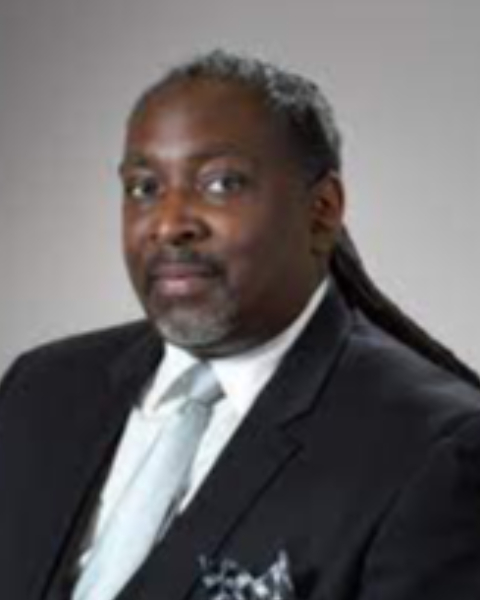
Stanford Hickman
Supervising Trial Attorney
New York County Defender Services
Stanford Hickman is a criminal defense attorney currently based in New York City. A Howard University School of Law Graduate, he began his career as a staff attorney with the Legal Aid Society in Queens New York and progressed to senior trial attorney with New York County Defender Services, (NYCDS). During his tenure as a senior trial attorney with NYCDS, Hickman has litigated numerous cases including homicides, armed robberies, and a high-profile celebrity stalking case. Hickman, along with trial work, is currently a supervisor with NYCDS overseeing and mentoring a team of attorneys as they develop in their career.
Additionally, he is involved in an initiative to formulate new policy and expand in-house training, toward combating implicit bias and advancing racial justice. Hickman also participates in numerous training programs around the country, he has served as a faculty member for Nash /York trial training, Department of Public Advocacy in Faubush, Kentucky and Office of the Alternative Defender in Denver, Colorado and Office of the Public Defender in Trenton, New Jersey. Locally, he serves as an adjunct professor with Seton Hall School of Law for their intersession trial advocacy program. Hickman is also a graduate of the inaugural class of the New York Black Defender Leadership Institute, (BDLI), which is sponsored by the Black Public Defender Association, and now serves on the faculty for BDLI.
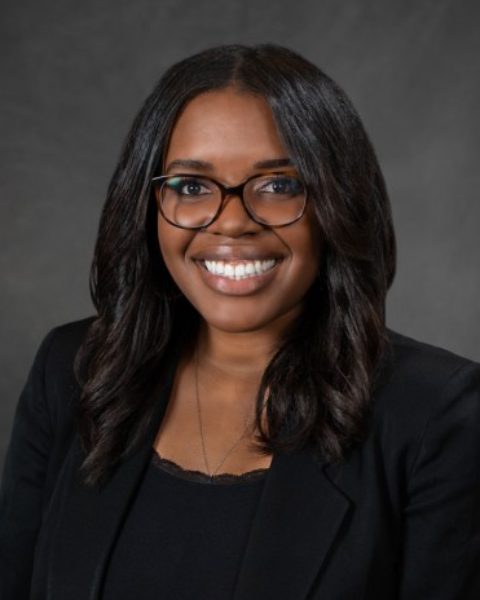
Vickie Mwitanti
Trial Attorney
New York County Defender Services
Vickie Mwitanti is a sixth-year trial attorney at New York County Defender Services where she has had the privilege of representing folks accused of crimes in Manhattan. She is a past Black Defender Leadership Institute Fellow as well as co-chair for NYCDS’ Racial Justice Data Committee who focus their efforts towards using Data to strengthen race-conscious advocacy. She is a Suffolk University Law School graduate and spent most of her time in Boston as an advocate and community educator for fair housing. Although she is a lawyer by trade, she has always been a public servant by calling and her motivations are rooted in combatting race-based social justice issues.

Celia Joyce
Senior Data Analyst
New York County Defender Services
Celia Joyce (she/they) is the Senior Data Analyst at New York County Defender Services. Celia began her career at NYCDS in 2016, shortly after graduating from Wesleyan University with a B.A. in Neuroscience and Behavior. In her first role, she developed a new position dedicated to liaising with and advocating for clients incarcerated in New York City and State correctional facilities. In recent years, Celia has played a significant role in the development and customization of NYCDS’s new case management system, as well as the organization’s transition to fully-digital operations. She currently develops office-wide workflows, implementation strategies, and curricula to aid the office in providing exceptional services to clients. Celia is a member of the NYCDS LGBTQIA+ Affinity Group and co-chairs the Data Subcommittee of the Racial Justice Litigation Working Group, through which she has spearheaded strategies to gather accurate, self-defined indicators of clients’ unique identities. Celia has contributed to numerous impactful projects, including a fiscal analysis of taxpayer benefits from services provided by Brooklyn Community Bail Fund and a ground-breaking report published by NYSACDL and NACDL titled “The New York State Trial Penalty: The Constitutional Right to Trial Under Attack”.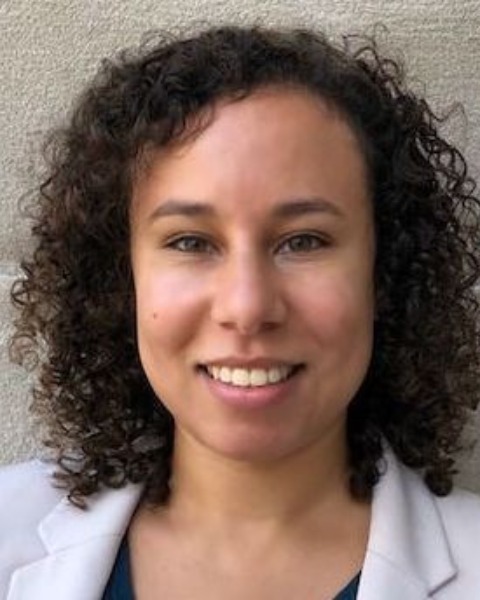
Estée Rubien-Thomas, PhD
Research Lead
New York County Defender Services
Estée Rubien-Thomas (she/her) is the Research Lead at New York County Defender Services. She has a Ph.D. in Experimental Psychology from Yale University, where her work focused on the social neuroscience of interracial interactions, and how developmental neuroscience can inform the treatment of justice-involved youth. Estée joined the Data Research Unit at NYCDS in 2021, where her expertise has been instrumental in developing and implementing evidence-based practice standards throughout the organization. In addition, Estée conducts research to support various policy and advocacy efforts. Estée is a member of NYCDS’ Racial Justice Litigation Working Group, where she uses both internal case data and public datasets to identify and address racial inequities in the criminal legal system. -
Contains 1 Component(s), Includes Credits
OAA Title III funds for providing legal services to seniors come with unique programmatic requirements. Every grantee must conduct community education sessions, and structured outreach activities in addition to the direct representation they provide clients. When COVID struck, we struggled not only with how to represent seniors in isolation, but with how to satisfy our education and outreach obligations. We developed a weekly Zoom meeting protocol, in which we discussed legal developments and our service provision innovations. We updated our legal workers on COVID related employment issues, the housing moratorium, as well as newly relevant technical issues, such as virtual notarization of documents, and then presented on these issues at the weekly meetings. As COVID progressed and then waned, the meetings became a forum for encouraging inter-office cooperation and collaboration, promoting the diverse expertise of our members. We changed our meeting schedule to every two weeks, and then to the current schedule of once a month. The federal Administration for Community Living (ACL) encouraged grantees to center its senior outreach around equitable principles, and we began discussing those as a team, and then implementing them as we progressed. This commitment and conversation was further developed when we sponsored the first firmwide in-person training meeting after COVID, featuring an interactive race equity exercise throughout extensive substantive and practical trainings. Our alignment-by-necessity of these deliverables, along with development our top/down effort to streamline these commitments has created a legal practice team which delivers impact work, strong support for individual representation, as well as critical policy work. Our mission and firm values are reflected in our progress toward equity-centered work. Our firm principles have become action points, and this has resulted in a rich work product created from existing firm resources.
OAA Title III funds for providing legal services to seniors come with unique programmatic requirements. Every grantee must conduct community education sessions, and structured outreach activities in addition to the direct representation they provide clients. When COVID struck, we struggled not only with how to represent seniors in isolation, but with how to satisfy our education and outreach obligations. We developed a weekly Zoom meeting protocol, in which we discussed legal developments and our service provision innovations. We updated our legal workers on COVID related employment issues, the housing moratorium, as well as newly relevant technical issues, such as virtual notarization of documents, and then presented on these issues at the weekly meetings. As COVID progressed and then waned, the meetings became a forum for encouraging inter-office cooperation and collaboration, promoting the diverse expertise of our members. We changed our meeting schedule to every two weeks, and then to the current schedule of once a month. The federal Administration for Community Living (ACL) encouraged grantees to center its senior outreach around equitable principles, and we began discussing those as a team, and then implementing them as we progressed. This commitment and conversation was further developed when we sponsored the first firmwide in-person training meeting after COVID, featuring an interactive race equity exercise throughout extensive substantive and practical trainings. Our alignment-by-necessity of these deliverables, along with development our top/down effort to streamline these commitments has created a legal practice team which delivers impact work, strong support for individual representation, as well as critical policy work. Our mission and firm values are reflected in our progress toward equity-centered work. Our firm principles have become action points, and this has resulted in a rich work product created from existing firm resources.
- Identify and implement a broader, achievable vision of meaningful "impact work" for firm constituencies which buttresses their firm's mission and satisfies the demands of grantors and funders.
- Present practical suggestions for implementing multi-level demands in their firm's work in an integrative way which develops cooperative work within the firm, positively shaping firm culture.
- Devise a practical plan for the development of firm structure and work from the principles--such as connectedness, equity and accountability--which underlie the demands which can stymie our nonprofit work.
- Present to their firm leadership and legal workers a holistic action plan that helps resolve the tension between impact work, individual representation, and important policy work without requiring additional resources.
.jpg)
Robert Bush, n/a
Statewide Director of Elder Law Unit
Georgia Legal Services Program, Inc.
Robert W. Bush: Robert has worked for the Georgia Legal Services Program, Inc. since 1992. He was the first attorney in Savannah to focus his practice on those suffering with HIV/AIDS and their caregivers in the early 90’s after securing funding for the project. He served hundreds of clients, and presented on his work to local, state, national, and international audiences. At the conclusion of this project, Robert shifted his focus to representing persons sixty years of age and over. He founded and chairs GLSP's Elder Action Team, and is now the statewide Director of GLSP’s Elder Law Unit, coordinating and guiding GLSP's work with senior clients. In addition to his casework, Robert continues to advocate for marginalized populations both in his practice and in his local community, placing a special focus on outreach and clinical work with special populations, such as LGBTQIA persons, the Hispanic community, and those lacking access to healthcare. He was a founding member of the Chatham County Safety Net Planning Council and has also served on the boards of the Chatham County Center Court; the Governor’s Advisory Board on Health Information Technology and Transparency; Georgians for a Healthy Future; the Advisory Board of Armstrong Atlantic University’s Masters of Public Health program; and the Legal Services Delivery Committee of the American Bar Association’s Section on Litigation. He has presented and facilitated three previously at MIE supervision trainings.
Shannon Mills, n/a
Director of Attorney Recruitment, Diversity and Retention
Georgia Legal Services Program, Inc.
Shannon L. Mills was born in raised in New Orleans, LA. He later moved to Carrollton, GA where he graduated from Carrollton High School. After, he attended Mercer University where he graduated with a Bachelor of Business Administration degree with a dual concentration in management and finance. He then attended Mercer University Law School and received his Juris Doctorate in 2017. He began working at Georgia Legal Services Program as an Equal Justice Works Fellow under the Georgia Housing Corps. Program. After his fellowship ended in 2020, he remained with Georgia Legal Services Program as staff attorney and then supervising attorney in 2021. He has been a leader on the GLSP Race Equity Team and has contributed to other teams and initiatives across the program. In March 2024, he transitioned into the role of Director of Attorney Recruitment, Diversity and Retention where he oversees attorney recruitment efforts and focuses on further advancing Georgia Legal Services Program’s commitment to diversity and retention. -
Contains 1 Component(s), Includes Credits
We will explore how civil legal aid and law students can collaborate with Tribes to enhance access to justice within tribal court systems. Tribal courts face unique hurdles, including jurisdictional complexities, resource limitations, and cultural barriers. This session will delve into these challenges, highlighting how Skagit Legal Aid, the Swinomish Indian Tribal Community, and the Native American Law Student Association at Seattle University Law School created educational pathways, mentorship programs, and collaborative initiatives designed to prepare and support new attorneys dedicated to practice in tribal communities.
We will explore how civil legal aid and law students can collaborate with Tribes to enhance access to justice within tribal court systems. Tribal courts face unique hurdles, including jurisdictional complexities, resource limitations, and cultural barriers. This session will delve into these challenges, highlighting how Skagit Legal Aid, the Swinomish Indian Tribal Community, and the Native American Law Student Association at Seattle University Law School created educational pathways, mentorship programs, and collaborative initiatives designed to prepare and support new attorneys dedicated to practice in tribal communities.
- describe the unique jurisdictional and cultural challenges faced by tribal court systems and how these impact access to justice for tribal communities.
- identify and outline successful educational pathways, mentorship programs, and collaborative initiatives that prepare and support new attorneys in tribal courts
- demonstrate essential skills and strategies for providing culturally sensitive and effective legal advocacy in tribal court systems

Auston Jimmicum, n/a
Tribal Law Clerk
Skagit Legal Aid
Auston Jimmicum (he/him/él) is the Tribal Law Clerk for Skagit Legal Aid, and he is a Rule 9 Licensed Legal Intern. He is currently assisting tribal members in the Skagit Valley Area, mainly on the Swinomish Reservation, with various civil legal matters. Auston is an enrolled member of the Little Traverse Bay Bands of Odawa Indians, and he grew up on the Makah Reservation in Neah Bay, Washington. He earned his B.A. in Law, Societies, & Justice with a minor in American Indian Studies from the University of Washington. He earned his J.D. with an Emphasis in Native American Law from the University of Idaho. During law school, Auston mainly assisted tribal members with Estate Planning, and other Family Law matters. He also has experience with work focused on addressing the Missing and Murdered Indigenous Peoples’ Crisis, Tribal Economic Development, and Tribal “Treatment as State” Applications. His passion for advocating for the unique issues and obstacles Native American people face is what inspired him to become a lawyer, and he hopes to apply this passion to his work at Skagit Legal Aid. His goal is to expand the Tribal Law Clinics so that more tribes in Skagit County can take advantage of the services that Skagit Legal Aid provides. Auston joined Skagit Legal Aid in April of 2023.
Andrew Dugan, n/a
Executive Director
Skagit Legal Aid
Andy Dugan (he/him/él) is an attorney and the Executive Director for Skagit Legal Aid. His career includes substantial post conviction and housing related experiences and direct representation to historically underrepresented individuals. He feels fortunate to bring his years of legal experience and passion for expanding justice to the Skagit Valley. Prior to moving to Washington, he was privileged to be one of the first staff attorneys at a legal clinic dedicated to representing LGBTQ community members across southern Ohio and previously served as a compliance and housing attorney for an innovative multistate law firm. He obtained his BSBA from The Ohio State University and his JD from Capital University Law School. Andy joined Skagit Legal Aid in July of 2020. Andy is an active Ex Officio Member of the Skagit County Bar Association, the Chair of the Washington State Bar Association Pro Bono & Public Service Committee, and a Co-Chair of the Washington Pro Bono Council. He is also a member of the King County Bar Association, American Immigration Lawyers Association, the Washington Defender Association, and the American Bar Association.
Jessica Pouley
Jessica Pouley is a direct descendant of the Colville Confederated Tribes, Arrow Lakes Band of Indians, and First Nations Sinixt. She is passionate about serving Tribal communities and currently works as a Child Advocate Attorney with the Tulalip Office of Civil Legal Aid. Additionally, Jessica teaches part-time in the Edmonds College Paralegal Program and serves on the Skagit Legal Aid Board. With years of experience addressing issues affecting Native women, youth, and families, she is deeply committed to her work. Jessica earned her J.D. from Seattle University in 2023 and a Master of Jurisprudence in Indian Law from the University of Tulsa in 2017. Before attending law school, she served in various roles for Tribal communities, including as a Tribal court training coordinator, domestic violence victim advocate, and faculty member at Northwest Indian College. -
Contains 1 Component(s), Includes Credits
Our panel will highlight our successful pro bono clinics we have built over the past year to enhance outcomes for immigrants with cancer. Specifically, 96 immigrants with cancer and their families have received comprehensive pro bono assistance to legally extend the period of their authorized stay of their tourist visas due to medical necessity and were able to retain control of their decision making, should their illness progress, by assisting in the completion of advance directives. The need is significant and by collaborating with the private bar we have served more immigrant clients and removed social and economic barriers that traditionally have made it challenging for immigrant patients to receive these essential services. Finally, we will share qualitative data from recent years, client narratives and case examples to illustrate how our medical-legal partnership model has positively impacted the legal and health outcomes for immigrant patients. We hope LegalHealth's models for a medical-legal partnership and pro-bono firm collaboration can inspire public health and legal programming for people in different states with similar needs, heighten interest in multidisciplinary information exchange between healthcare and legal systems, and renew commitment to health and racial justice and a healthier society for all.
Our presentation will discuss how NYLAG's LegalHealth medical-legal partnership (MLP) improves the legal and health outcomes for NYC's immigrant communities, including many recent arrivals. As the nation's largest and one of the longest-standing medical-legal partnerships, we have historically rallied around immigrants who are forced to deal with complex legal and health issues. Through our extensive partnerships with various public safety net hospitals, private hospitals and outpatient community clinics, we unite legal care and health care, so the patient relies on one interdisciplinary team to collectively address their legal and health needs. Through LegalHealth's MLP model, our attorneys and paralegals provide culturally competent and trauma-informed wrap around legal services for patients across a wide range of civil legal issues. We fight for health equity and equality for New York's immigrant patient communities by leveraging our expertise in various areas of law, particularly in immigration law, to help patients obtain life-saving transplants, much-needed comprehensive health insurance coverage, and safe hospital discharges. Likewise, we help immigrant families access healthier homes and protect their futures by securing reasonable housing accommodations, obtaining disability waivers for their naturalization applications and representing them in guardianship matters for adults and children. Throughout these various legal processes, our staff regularly collaborates with patients' social workers, community health workers and doctors to obtain important medical evidence, support letters, affidavits and required information. We also provide regular trainings to healthcare professionals on social determinants of health to further build capacity for individual and systemic change, raise consciousness about important public health and legal issues, particularly recent immigration changes, and ignite greater solidarity with impacted immigrant communities. Our panel will highlight our successful pro bono clinics we have built over the past year to enhance outcomes for immigrants with cancer. Specifically, 96 immigrants with cancer and their families have received comprehensive pro bono assistance to legally extend the period of their authorized stay of their tourist visas due to medical necessity and were able to retain control of their decision making, should their illness progress, by assisting in the completion of advance directives. The need is significant and by collaborating with the private bar we have served more immigrant clients and removed social and economic barriers that traditionally have made it challenging for immigrant patients to receive these essential services. Finally, we will share qualitative data from recent years, client narratives and case examples to illustrate how our medical-legal partnership model has positively impacted the legal and health outcomes for immigrant patients. We hope LegalHealth's models for a medical-legal partnership and pro-bono firm collaboration can inspire public health and legal programming for people in different states with similar needs, heighten interest in multidisciplinary information exchange between healthcare and legal systems, and renew commitment to health and racial justice and a healthier society for all.
- Upon completion, participants will be able to understand the structure and benefits of the LegalHealth medical-legal partnership (MLP) model in improving legal and health outcomes for immigrant communities.
- Upon completion, participants will be able to identify effective strategies for integrating legal services into other practices to address complex legal and health issues faced by immigrant populations.
- Upon completion, participants will be able to apply best practices from LegalHealth's culturally competent and trauma-informed legal services to their own legal practices to enhance support for vulnerable clients.
- Upon completion, participants will be able to develop collaborative initiatives and foster partnerships to create interdisciplinary teams that collectively address the legal and health needs of their clients.
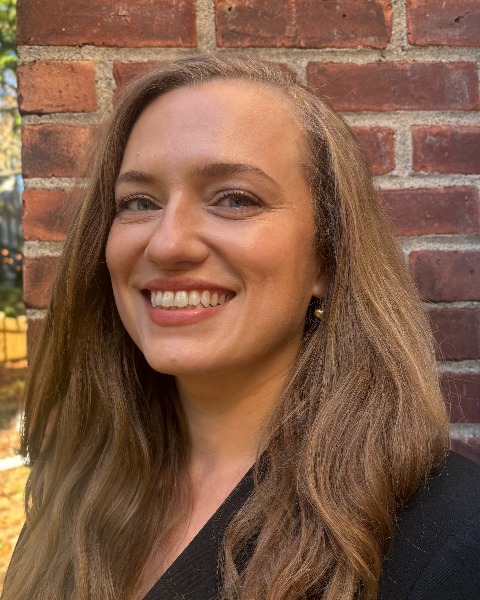
Julie Babayeva, Esq.
Supervising Attorney
New York Legal Assistance Group
Julie Babayeva is a Supervising Attorney with LegalHealth at New York Legal Assistance Group (NYLAG). Julie coordinates the Cancer Advocacy Project, which focuses on the specific disparities faced by people living with cancer. Julie joined NYLAG in 2014 and ran legal clinics in several New York City public and private hospitals, where she assisted patients with a variety of civil legal issues, including government benefits, medical insurance, immigration, credit issues, family law, landlord-tenant matters, and advanced planning. Julie also trains healthcare professionals throughout New York City on subjects relevant to their patients as listed above. Julie is a graduate of St. John’s University School of Law and Pace University.
Kelly Chen, Esq.
Senior Staff Attorney
New York Legal Assistance Group
Kelly Chen is currently is a Senior Staff Attorney with New York Legal Assistance Group's LegalHealth Unit. Previously, she was a Team Leader and Staff Attorney at the Bronx Defenders' Family Defense Practice. During law school, she defended parents and foster children in the Family Advocacy Clinic, successfully litigated a client’s criminal appeal in the Illinois Office of the State Appellate Defender Clinic, spent a year representing parents in juvenile abuse and neglect cases at the Champaign County Public Defender’s Office and was on the executive board of the Family Law Society. She spent her summers interning with Brooklyn Defender Services' Family Defense Practice and with the Office of Fair Housing and Equal Opportunity at the U.S. Department of Housing and Urban Development in Chicago. Kelly received her J.D. from the University of Illinois College of Law and has a B.S. in Psychology, B.A. in Comparative Cultural Studies and minor in Development Studies from the Ohio State University.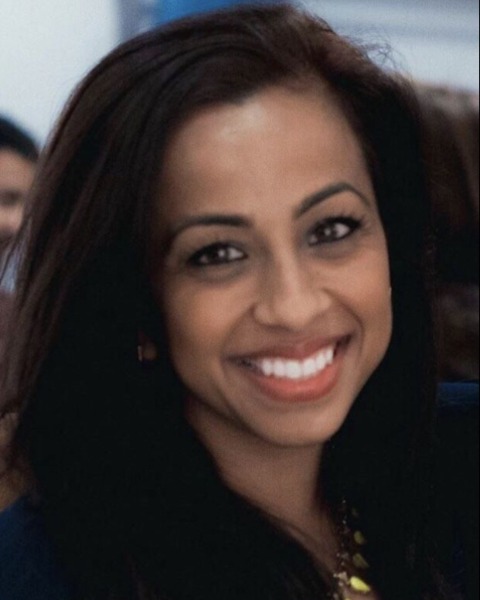
Nigar Shaikh
-
Contains 1 Component(s), Includes Credits
We will discuss the importance of the client's voice and why Clients should be at the table when decisions are made about them.
We will discuss the importance of the client's voice and why Clients should be at the table when decisions are made about them.
- To empower the voice of the client.
- To see the client as a part of the puzzle and not an extra piece.
- To make sure clients are at the table from the beginning to the end.
- The importance of uplifting clients and the work their doing in the community/legal aid space

Eddie Ellis jr, n/a
Advocate
NLADA
Freedom Fighter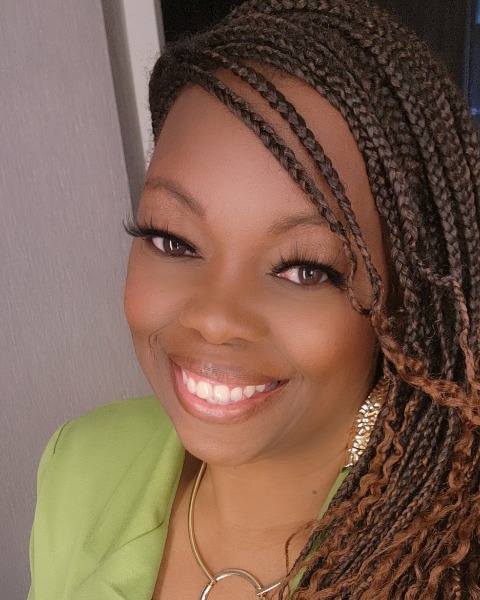
Regina Kelly
Client Services Coordinator
Lone Star Legal Aid
Regina advocates for the client voice to be not only heard but respected at each table of discussion in improving the legal system. Regina’s goal is to equipp clients with the knowledge and training needed to succeed in their communities and to be a life-line for organizations that strive to change our legal system. Her life was turned upside down when she was arrested at work before her double shift started. What she thought to be traffic tickets, turned out to be something far worse. She found herself wrongfully accused of ‘delivery of a controlled substance in a drug free school zone.’ She was locked away facing 15-25 years for a crime she did not commit. Regina not only stood strong and decided not to take the plea deal offered but also challenge the justice system in Texas. Who knew that stance would be the turning point for a desperate change in Texas laws. Regina’s story is featured in the award winning movie, American Violet, also in countless magazines across the nation, including Oprah’s “O” magazine, Rolling Stone, and Essence. Regina's fight and victory helped change Texas laws. Regina became a public speaker and trainer. She speaks at numerous universities across America, where her story and movie is used as part of their college curriculum. She trains Public Defenders and use her story as a postive learning tool to teach them how to better relate to their clients as a human and not just a caseload. It is very important Defenders understand plea deals not only affect the client, but the client’s household; including their children. Regina works as the Client Services Coordinator for Lone Star Legal Aid in Texas, President of Texas State Client Policy Council, President of Hearne Headstart Policy Council, and a strong advocate in her community.
Ronald Simpson-Bey, n/a
TBD
TBD
TBD
Soummer Crawford

Marquita WiseJones
Board Secretary
Maryland legal Aid
Marquita Wise Jones Im a client /Advocate by compasion Im the secretary on MLA board and im on committee s ,nominatinating finance,statigic planning, Maryland Legal Aid volunteer Board member Im a license Cosmetology Manger in Washington dc and Maryland Im a Hair stylist by profession. my hometown is Washington DC but I've reside in the state of Maryland My my future goals are to develop and become a professional public speaker in a platform where I'm helpful to people in the communities I was able to facilitate important information throughout the community . I love to paint I love to dance I like to sew and I love chatting with people organizing information facilitating the setups in the rooms Sharinformation on social media -
Contains 1 Component(s), Includes Credits
Program participants will be able to identify ethical and security risks concerning use of Artificial Intelligence (AI) in their law practice. The session will explore the fundamentals of GPT technology and demonstrate step-by-step how easy it is for attorneys to build and customize their own GPTs tailored to their specific legal needs.
Program participants will be able to identify ethical and security risks concerning use of Artificial Intelligence (AI) in their law practice. The session will explore the fundamentals of GPT technology and demonstrate step-by-step how easy it is for attorneys to build and customize their own GPTs tailored to their specific legal needs.
- Upon completion, program participants will be able to identify ethical and security risks concerning use of Artificial Intelligence (AI) in their law practice.
- Attendees will gain hands-on experience in setting up, and deploying GPTs, ensuring they leave with practical skills to enhance their practice
- n/a

Todd Scott